.jpg)
Special Experience
Tokyo
Tsukiji Market Shopping Trip and Edo Cuisine Cooking Class with a Local Culinary Expert
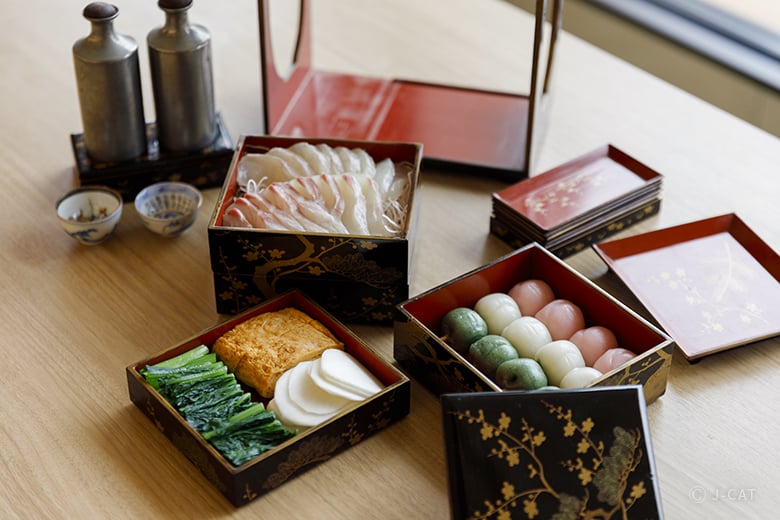
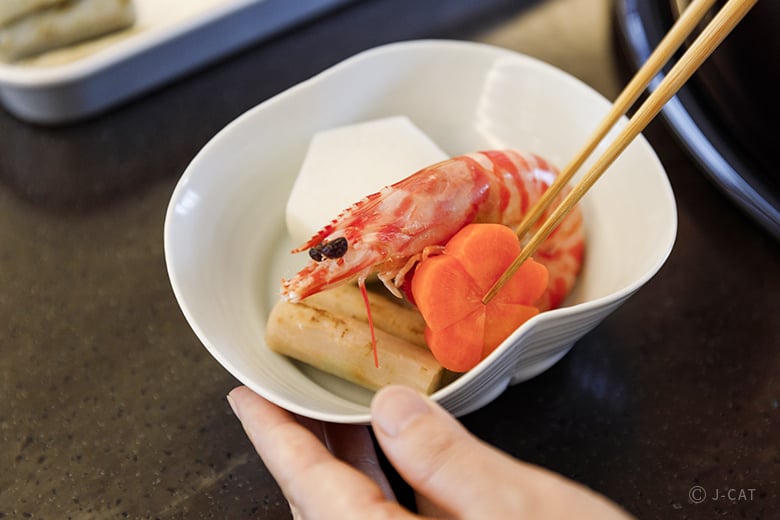
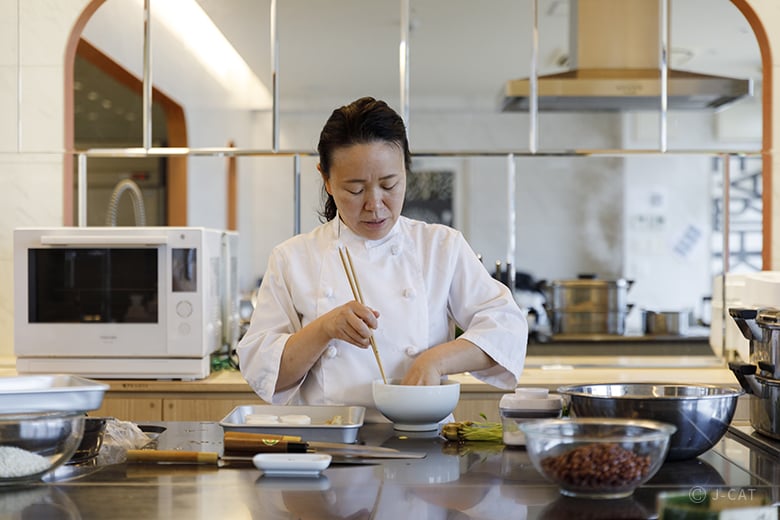
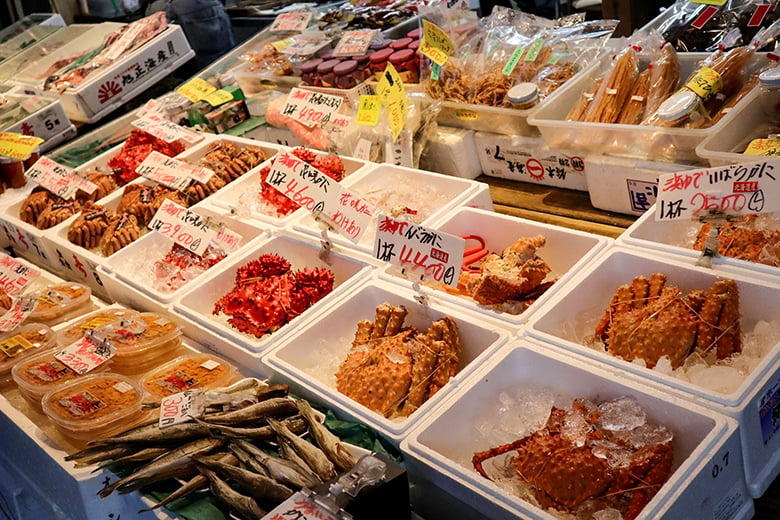

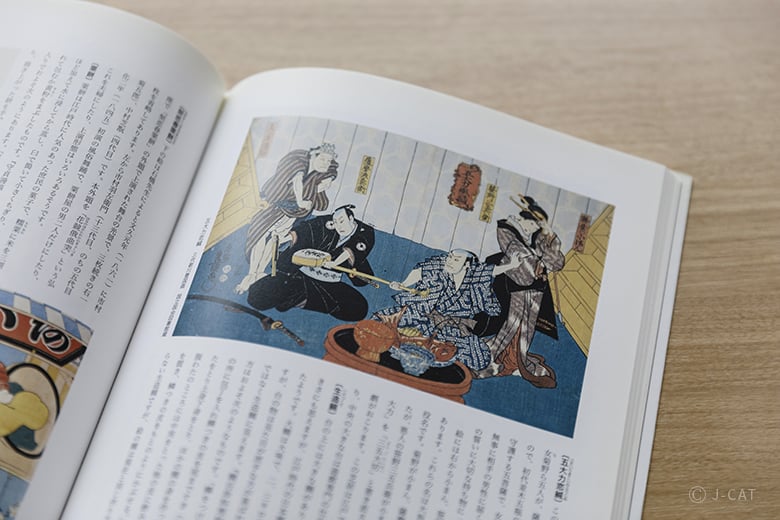
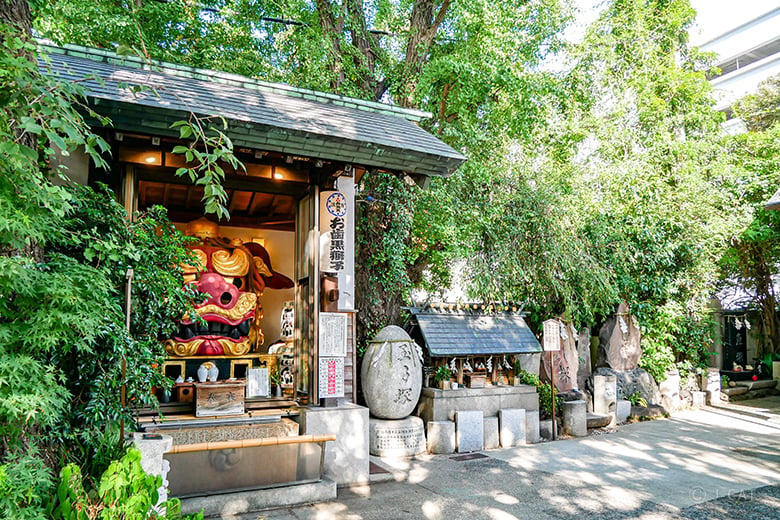
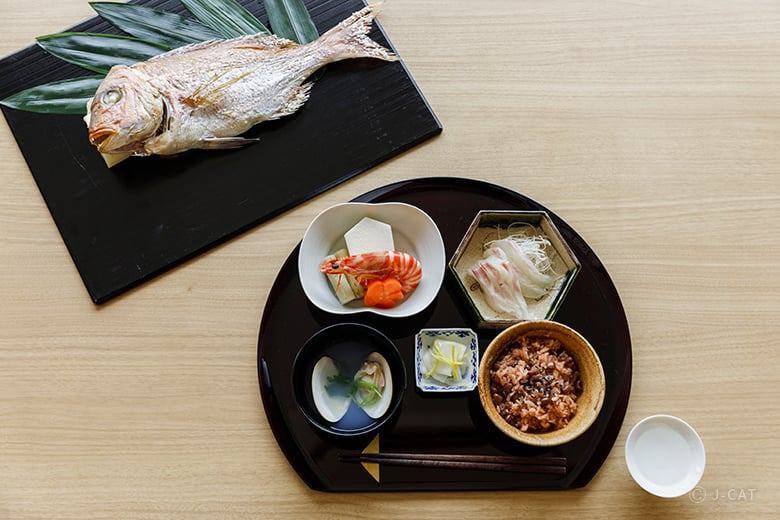
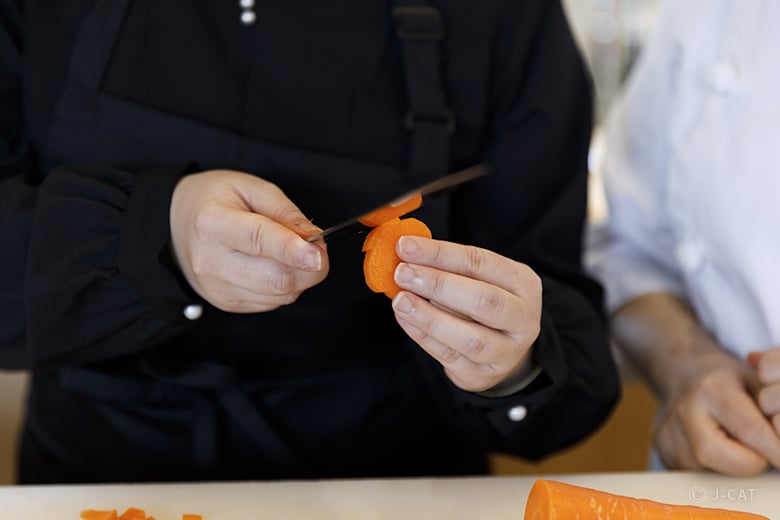
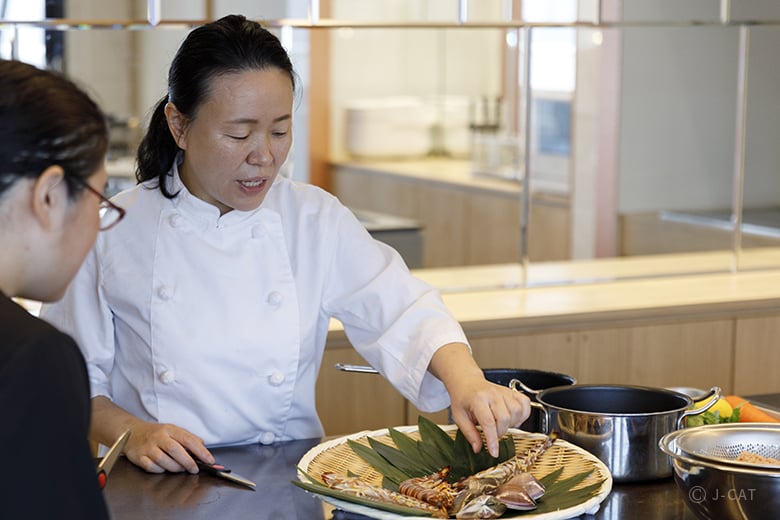
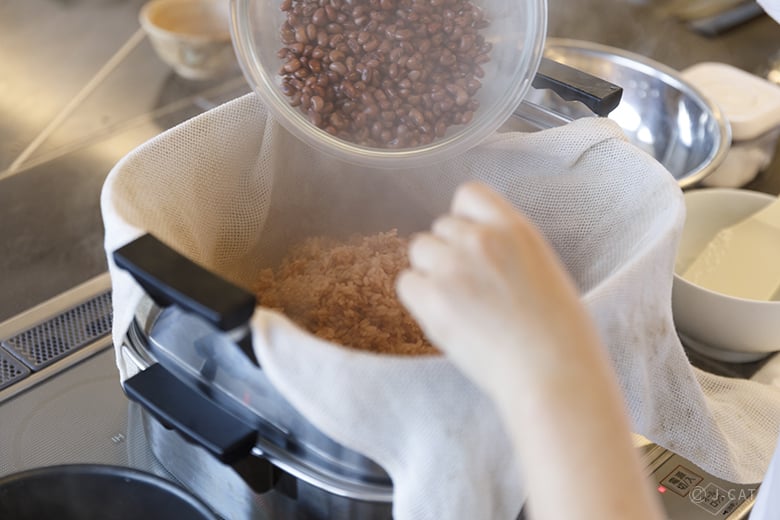
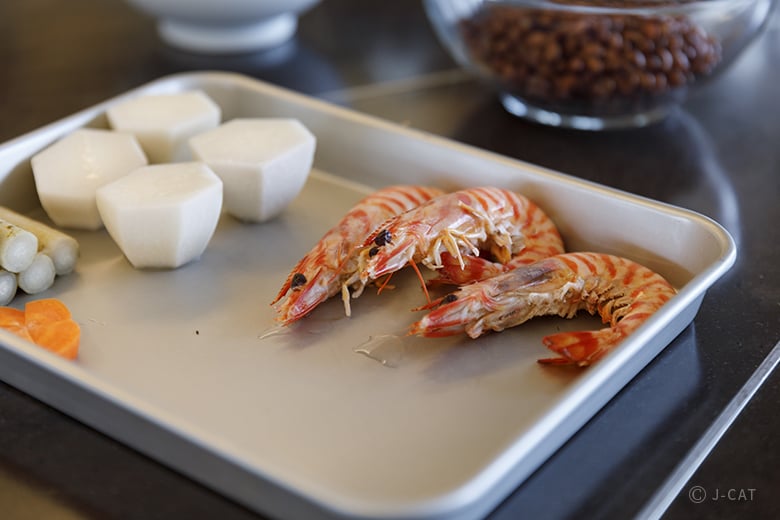
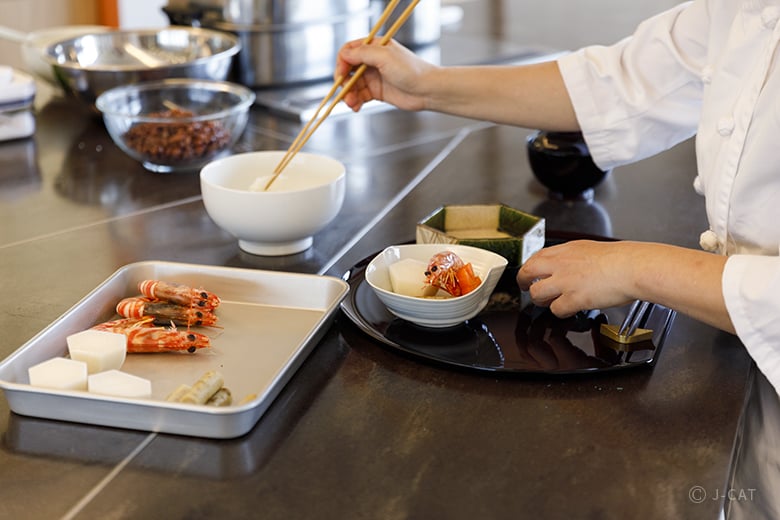
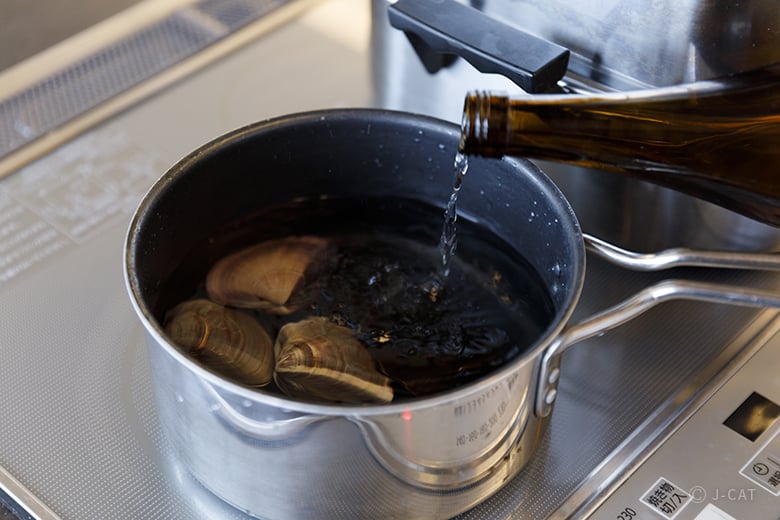
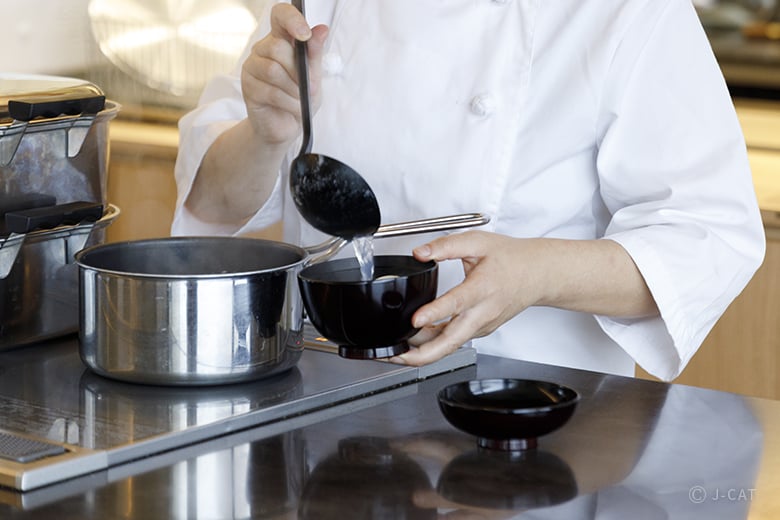
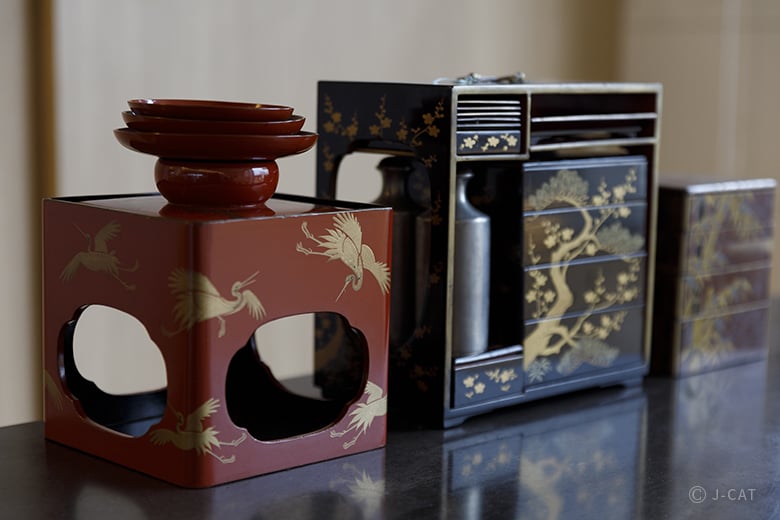
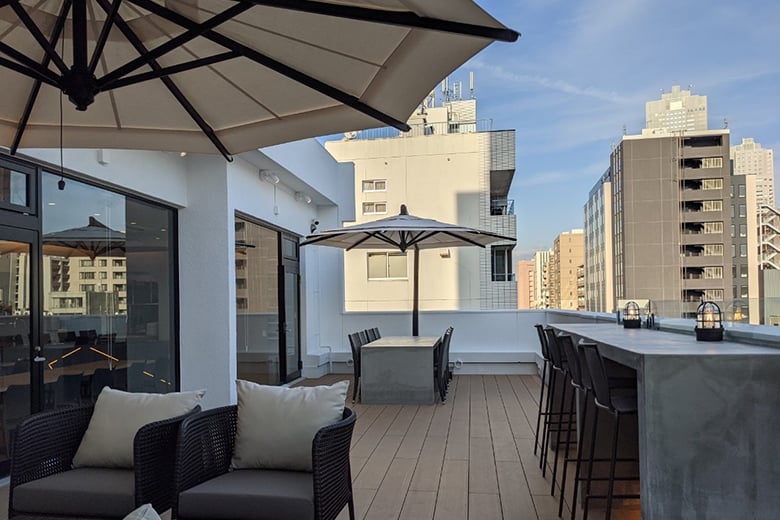

















Overview
Familiarize yourself with Edo cuisine, the local specialties of Tokyo, in this Wabunka-exclusive experience with expert researcher and chef Hanako Usui. Visit Namiyoke Shrine, the guardian of the Tsukiji district; then, at Tsukiji Market, meet Ms. Usui’s trusted suppliers as you shop for ingredients. Finally, at a stylish private venue, learn about Edo food culture and make a seasonal Edo course, which you will savor at the end of the experience.
Key Features
・Guided by an Edo cuisine expert, make traditional Tokyo dishes with time-honored cooking techniques and fresh ingredients
・Learn about the rich history and culture behind Edo cuisine: its markets, auspicious dishes for various occasions, and more
・Gain insight into Tsukiji’s local attractions, Namiyoke Shrine and Tsukiji Market, as you visit them with your instructor
Tokyo
150mins
from ¥154,000 /group
1 - 10 participants
Available in English
Cancel free up to 8 days prior
Details
A Hands-on, Multi-Sensory Encounter with Edo Cuisine
Standing out as a prominent figure in the world of Edo cuisine — Edo being the former name of Tokyo — is seasoned food researcher and chef, Hanako Usui. As a go-to name when it comes to Edo cuisine, Ms. Usui has been featured many times in television shows and other media. From cooking workshops to consulting services for food establishments, Ms. Usui has been actively involved in numerous culinary endeavors for several decades now.

Edo cuisine expert Hanako Usui greets guests with a warm smile
Ms. Usui’s interest in Edo cuisine stems from her time working in museum planning, when the lack of a museum dedicated to Japanese food culture inspired her to find her own way to help preserve this rich heritage. First training in Kyoto cuisine for nine years, she then shifted to learning and researching Edo cuisine for a decade. “As a lifelong Edokko (person born and raised in Tokyo), I thought, “Why not master the cuisine that I’m familiar with?” she explains.

Ms. Usui showing a set of lacquered tableware for serving Edo cuisine
Through this Wabunka-exclusive experience, Ms. Usui aims to spread the appeal of Edo cuisine. She explains that Edo cuisine is a type of regional cuisine that reflects not only the innovations to food culture that came about during the Edo period (1603–1868), but also a melting pot of influences. This is due to the sankin-kotai system, which required feudal lords from all over Japan to reside in the capital, Edo (now Tokyo), every other year. This annual influx of men from across the nation led to culinary and cultural exchanges, as well as the flourishing of izakaya pub culture.

Genuine elaborate lacquered tableware from the Edo period
Additionally, seasonality is important to Edo cuisine, as the people of Edo loved to celebrate special occasions. Certain dishes then took on auspicious meanings as they became associated with these occasions. Thus, in this Wabunka-exclusive plan, you will make an Edo cuisine course reflecting a seasonal occasion that falls close to your experience date.
A Visit to Namiyoke Shrine, The Guardian of Tsukiji Market
At Tokyo’s famous Tsukiji district, you’ll start this experience by paying your respects at the centuries-old Namiyoke Shrine. Also known as Namiyoke Inari Shrine, it has long been considered the guardian of Tsukiji. It was built in gratitude to the deity that is said to have protected the area from rough waves; later, it was also regarded as the guardian of nearby Tsukiji Market.

Namiyoke Shrine, which has protected the Tsukiji area and supported Tsukiji Market for centuries
As Ms. Usui guides you around this historic local shrine, she will share fascinating trivia about the history of Edo’s markets, the shrine itself, and more. Be sure not to miss the memorial stones dedicated to egg, sushi, and shrimp. Unique to Namiyoke Shrine, these monuments were built by local merchants in appreciation and gratitude for these precious ingredients and dishes.
Purchasing Fresh Ingredients from Trusted Suppliers at Tsukiji Market
Next, Ms. Usui will take you to the well-known Tsukiji Outer Market to purchase ingredients: mainly fish, seafood, and some basic ingredients such as wasabi and kelp. According to Ms. Usui, fish and seafood are central to Edo cuisine, as the consumption of meat was forbidden during the Edo period. It is important to choose premium fish freshly caught from Tokyo Bay, which is why she recommends shopping at Tsukiji Market.

Tsukiji Market is a haven for not only fresh seafood, but also produce and other ingredients
As Ms. Usui has been a longtime patron of Tsukiji Market, she has built up relationships with many local suppliers over the years. Even to this day, she still makes frequent visits to this market. Observe as she interacts with her trusted suppliers of fish and other ingredients, making small talk with them, then choosing the most suitable seafood for the season. You might even pick up some tips from Ms. Usui on how to select the finest, freshest seafood.

Tai (sea bream), prawns, and hamaguri clams freshly purchased from Tsukiji Market
In this Wabunka experience, Ms. Usui will teach you how to make iwai gozen, a celebratory meal for occasions such as Shichi-Go-San (a ceremony in November for children aged three, five, and seven), and kanreki (one’s 60th birthday celebration). As such, Ms. Usui selected tai (sea bream), considered an auspicious fish in Japan; prawns, which symbolize longevity; and hamaguri clams, which symbolize togetherness.
Making Seasonal Edo Cuisine at a Kitchen Studio
Having purchased the necessary ingredients, you will head to a kitchen studio next to Tsukiji Market for the highlight of this experience: the cooking class. With a stylish modern design and ample natural light, the studio ensures a relaxing and comfortable experience.

Trace the history of Edo food culture and discover the cultural context of the dishes you will make
Before you start cooking, Ms. Usui will explain in more detail what you’ll make for the day, its historical and cultural context, and even related folklore and superstitions, if any. You’ll also gain more insight on Edo cuisine in general and the food culture during the Edo period. For example, according to Ms. Usui, the standard home-cooked meal arrangement during the Edo period was ichiju-issai: one meal, one soup, and one dish.

Learn useful tips to enhance the dishes’ flavor and presentation, such as how to make flower-shaped carrot slices
Then, it’s time for the hands-on cooking experience. Under Ms. Usui’s attentive guidance, even beginners at cooking need not be intimidated. She will also give you helpful, practical culinary advice, so even those with some cooking experience might learn something new from observing how Ms. Usui prepares food, like how to cut carrots into flower shapes or how to add umami flavor to sekihan (rice with red beans).

The finished iwai-zen: a hearty celebratory meal filled with auspicious ingredients
Finally, when the meal is ready, sit down and enjoy the fruit of your hard work, either indoors or, weather permitting, at the terrace. For this article, the iwai gozen consisted of salt-grilled sea bream, sekihan rice, sea-bream sashimi, clear soup with hamaguri clams, simmered prawn and vegetables, pickled turnip, and some sake to complement the hearty, balanced meal. After all, as Ms. Usui explains, it was during the Edo period that the practice of serving sake with a meal became commonplace.
Hanami Gozen: Edo Cuisine for Cherry Blossom-Viewing
In this experience, you will make Edo cuisine that reflects the seasonal occasion closest to your experience date. This is because, during the Edo period, special occasions called for elaborate courses and dishes made with ingredients associated with the season and/or celebration. One such example was hanami gozen, a meal for hanami (cherry blossom-viewing) season stored in a tiered box called gozen. A typical hanami gozen included sea bream for its auspicious symbolism, skewered rice balls called hanami dango, and sake.

Hanami gozen dishes prepared by Ms. Usui and served in an authentic antique tiered box from the Edo period
Bringing a boxed lunch to admire the cherry blossoms with family and friends has been a time-honored tradition for Japanese people since ancient times. Thus, from mid-March to April, participants of this experience will learn to make dishes for hanami gozen, which will be served in an authentic lacquered gozen from the Edo period. For more information on the seasonal themes for the dishes you will make in this experience, please check the “Further Remarks” section.
Edo Cuisine for Every Occasion
Through this experience, Ms. Usui hopes that guests will discover that Tokyo’s cuisine is more than its famous dishes such as sukiyaki or sushi. She says, “What I’d like guests to take away from this experience is the sheer variety of Edo cuisine. I hope that they will remember what makes Edo cuisine stand out. It’s a local cuisine that truly reflects the developments to food culture that came about during the Edo period.”

The dishes you will make are packed with not only flavor, but also meaning
There are plenty more occasions in Japanese culture that you may not know of, such as certain auspicious days on the lunar calendar. Book this experience for a culinary journey to the Edo period with Ms. Usui, and look forward to finding out what dishes you will enjoy on the day of your experience, what they symbolize, and the occasion they are associated with.
Hanako Usui

Hanako Usui
After years of training at Japanese restaurants, Hanako Usui established her own practice. She developed a renewed appreciation for fish and dried food from her regular market visits to purchase fish for her cooking classes. Passionate about spreading a dining culture that is influenced by the seasons and special occasions, Ms. Usui is active as a traveling chef and researcher of Edo cuisine.
Location
Earth Kitchen
Tsukiji, Chuo Ward, Tokyo
Request for booking
Select first preferred date (JST)
September 2025
Sun
Mon
Tue
Wed
Thu
Fri
Sat

17
Available

17
Full

17
No Events
Tokyo
150mins
from ¥154,000 /group
1 - 10 participants
Available in English
Cancel free up to 8 days prior
Things to know
Contact Us
If you have any questions, please contact us using the form below.
We also accept bookings from corporate clients and travel agencies.